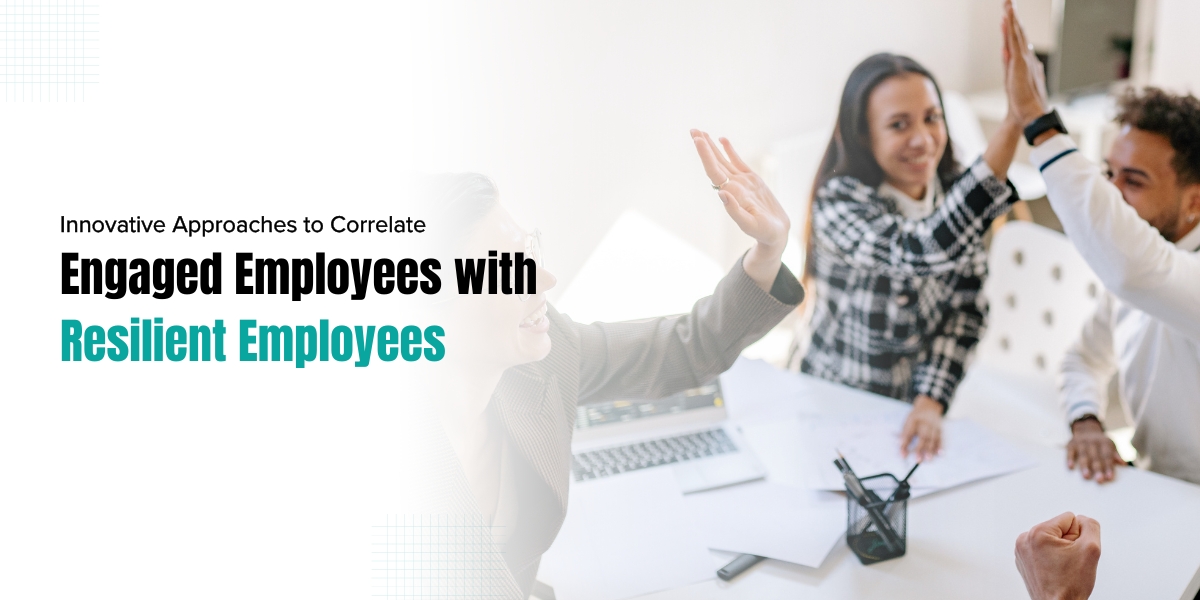
Innovative Approaches to Correlate Engaged Employees with Resilient Employees
The concepts of resilience and employee engagement have become essential for the success of organizations in the ever-changing modern workplace. Resilient workers can adjust to change, overcome obstacles, and maintain their well-being under pressure, whereas engaged workers are more dedicated to their jobs and productive.
Organizations can develop a committed and flexible workforce while also fostering engagement, which will lead to long-term success. Let’s explore a few innovative approaches to correlating engaged employees with resilient employees.
Holistic Well-Being Programs
People with higher resilience are better able to control their stress, keep a positive attitude, and create useful coping mechanisms. People who possess greater resilience are more likely to feel well, keep up good connections, and feel that their lives have meaning and purpose.
The goal of a holistic wellness program is to assist staff members in leading physically and psychologically healthier lives. It's a method of well-being that takes care of the social, mental, emotional, physical, and spiritual aspects of health all at once.
High well-being workers are more resilient, adaptive, and able to flourish in changing and unpredictable work contexts.
Businesses can foster a work environment that supports the entire person by addressing issues related to:- physical health
- mental and emotional well-being
- social relationships
- work-life balance, and
- occupational fulfilment
Personalized Development Plans
Personalized development plans (PDPs) customized to meet each employee's requirements and goals can significantly increase resilience and engagement. PDPs are intended to promote progress on both a personal and professional level, pinpoint areas of strength and room for development, and lay out a clear route to success.
PDPs are advantageous to the organization as a whole and the individual being developed. Workers can create a documented strategic plan for reaching their career objectives and receive the assistance they require to see those goals through to completion. They can also schedule expansion initiatives that result from procedures like evaluations.
Companies can also promote a sense of ownership and adaptability by encouraging staff members to set personal objectives and giving them the tools they need to accomplish their goals.
Recognition and Reward System
Recognition raises employee engagement on an individual basis. It has also been linked to higher productivity and employee loyalty, which in turn increases retention. Rewards also contribute to the development of a high-performance culture where everyone is aware of what is required to achieve.
Employees feel respected and appreciated by their employers when they receive rewards or recognition for their hard work, and this motivates them to put forth more effort and produce more. Employers may be able to lower staff turnover and increase employee loyalty by expressing gratitude for their efforts and accomplishments.
Positive behaviours can be reinforced by putting in place cutting-edge award programs that honour resilience in addition to success. For example, companies can designate rewards for staff members who show remarkable problem-solving abilities or who effectively handle difficult circumstances.
This increases participation while highlighting the importance of resilience and inspiring others to acquire similar qualities.
Flexible Work Arrangements
Flexible work schedules, including shorter workweeks, flexible hours, and remote work choices, can improve resilience and engagement. These agreements lessen stress and boost job satisfaction by enabling workers to manage their personal and professional lives better. Organizations may foster a more engaged and resilient workforce by:
- empowering workers to take charge of their schedule management and
- equipping them with the necessary tools to work remotely
This flexibility draws in a varied talent pool of individuals who appreciate autonomy and work-life balance, in addition to improving employee satisfaction and retention. One of the most effective ways to increase employee engagement and develop a more resilient, dynamic workforce is through flexible work arrangements.
Flexible working results in increased output, higher profitability, lower absenteeism, and staff turnover. Employees can plan their workdays to suit their needs rather than being constrained by rigid schedules and office regulations. Employees may become more motivated when they feel more invested in and accountable for the results of their work.
Connect with the Resiliency Program and explore more innovative approaches to correlate engaged employees with resilient employees.